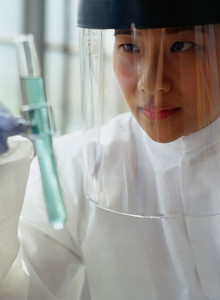“Thanks to the stringent examinations of EMEA, patients can trust that approved biosimilars are effective and tolerable – a reassuring remark for those who are dependent on such medicines,” said Professor Theo Dingermann of the Goethe University in Frankfurt, Germany, at the Weekend Workshop ;Patient and Pharmaceutical Care’ of the German Union of Pharmacists Societies (Bundesvereinigung Deutscher Apothekerverbände, ABDA) held on 17–18 October 2009 in Hannover, Germany.
“Basically, you could say that objectively there is hardly a reason to be sceptical or alarmed if as a patient you would be offered a different preparation than the usual one, provided that it is indeed a biosimilar of the active ingredient you obtained so far. However, in the treatment of severe illnesses an ‘objective consideration’ is not the obligatory measure of all things,” he stressed.
No forced substitution
Professor Dingermann admitted that it is only too understandable if patients do not want to accept a preparation change under any circumstances, because they confide in and pin their hopes on a to them well-known medicine and because they know the facilities for and persons who counsel them with their complex therapy.
“Such a confidence and belief in the – with the physician jointly decided – therapy are extremely important for the treatment success of a severe illness,” he stressed. “Therefore patients should – together with their physician and pharmacist – claim their right to be actively involved in the decision processes of their treatment”.
According to Professor Dingermann, this right is partly levered out today by the so-called ‘discount contracts’ that health insurance companies negotiate with a particular pharmaceutical manufacturer. “However, in isolated cases it is possible to refrain from the dispensing obligation of the discount-favoured medicine. Based on this possibility, pharmacists have an even more particular responsibility in the dispensing of biosimilars and can apply their pharmaceutical knowledge here for the purpose of good pharmaceutical care,” he said.
During his lecture, Professor Dingermann referred to the German Guideline for Good Substitution Practice of the German Pharmaceutical Society (DPhG), in which it is stated that “in particular cases substitution should not take place, e.g. if it concerns an anxious or agitated patient, for whom a preparation change (no matter what medicine it concerns) would lead to refusal to take medication or to an aggravating worsening of compliance; or if the substitution could arouse fears in the patient ..., that his disease pattern could worsen by the preparation change; in which it is irrelevant whether the fears are rationally justified or not ...”.
He added that this exception recommendation can also be applied to multiple sclerosis patients if it is clear that a preparation change would make them anxious. “After all, you’re not allowed to force patients to substitute a familiar preparation by a new one, also when it concerns a similar medicine or even a putative identical one”.
References:
Professor Theo Dingermann. Biosimilars – Business as usual oder eine neue pharmazeutische Herausforderung. ABDA Wochenendworkshop Patient und Pharmazeutische Betreuung;17-18 October 2009; Hannover, Germany.
Pharmazeutische Betreuung: Mut zur Kommunikation. Pharmazeutische Zeitung. 43/2009.
Biosimilars – ähnlich, aber nicht gleich, Jahresarbeitstagung der pharmazeutischen und veterinärmedizinischen Überwachungsbeamtinnen und Überwachungsbeamten sowie der Mitarbeiterinnen und Mitarbeiter der Arzneimitteluntersuchungsstellen der Länder, 29 September 2009, Frankfurt, Germany; Deutsche Apotheker Zeitung. 2007 Sept 20.
Source: ABDA Wochenendworkshop Patient und Pharmazeutische Betreuung; Pharmazeutische Zeitung; Deutsche Apotheker Zeitung








 0
0











Post your comment